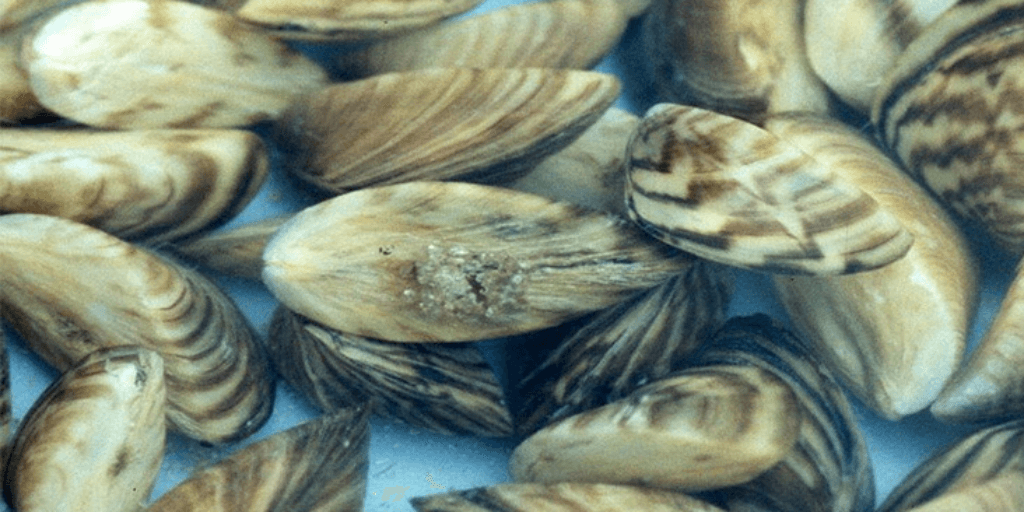NEWPORT — This week the Memphremagog Conservation Inc (MCI) released a study confirming that there are zebra mussels present in Magog Bay, which is located at the northern edge of Lake Memphremagog in Quebec.
Zebra mussels are an invasive species. They are a small freshwater mollusk that attaches to firm surfaces and can clog pipes and other underwater infrastructure.
They are also filter-feeders, consuming microscopic aquatic life that is the base of the food web for lakes. Their feeding habits can impact the native species that also consume those food sources.
“Currently we have not found any zebra mussels in the US portion of Lake Memphremagog,” says Kendall Lambert, Administrative Director of the Memphremagog Watershed Association. “Every year, we work closely with the Vermont Department of Environmental Conservation and a group of local volunteers to patrol our lake and survey for aquatic invasive species. Our patrollers will be on the lookout for zebra mussels.”
The Vermont Department of Environmental Conservation (VTDEC) has also received the report from MCI.
Josh Mulhollem, Aquatic Invasive Species Management Coordinator at VTDEC, says that the Department will be ramping up sampling efforts for zebra mussels in Memphremagog over the next couple months, will be expanding their educational campaign in the region, and will be convening a meeting of all involved stakeholders to discuss steps going forward.
Although no zebra mussels have been found in the southern part of Memphremagog, visitors are encouraged to take extra caution in draining and drying watercraft and equipment after leaving the lake.
This year, the City of Newport received just over $17,000 in grant money from the state of Vermont to support a high-tech boat washing station with State-trained greeters at the city dock.
The city has also invested in a hydro-raking operation to control the infestation of the invasive Eurasian watermilfoil around the boat launch that impedes navigation.
“There are a lot of factors which contribute to whether or not zebra mussels can thrive in a lake,” Lambert said. “Right now, we simply don’t have enough information to know how or if they might spread. It’s about early detection, planning, and spread prevention.


